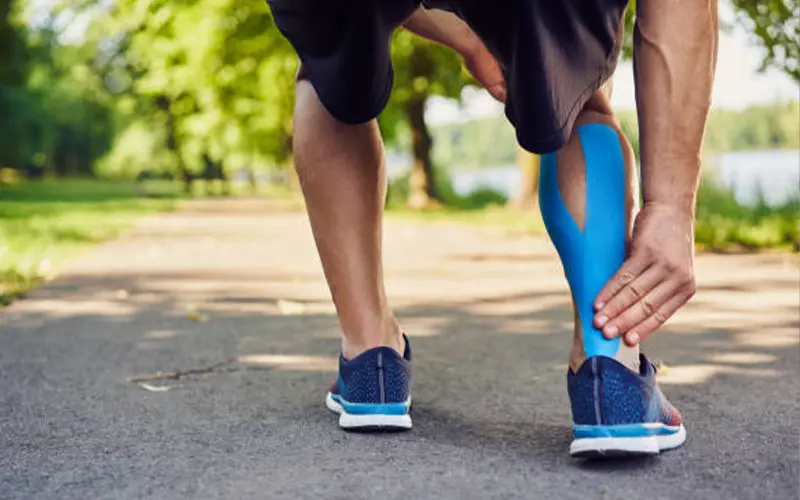Achilles Tendinitis

Heel pain is a common complaint that causes someone to make an appointment with one of our podiatrists. There are several possible sources for this pain. Plantar fasciitis, Sever’s disease, calcaneal fractures, and bursitis are some common conditions which cause heel pain. However, another condition that causes heel pain is Achilles tendinitis. Being able to recognize the symptoms will enable you to identify your injury and prevent further damage to the Achilles tendon. Preventative measures can help you reduce the risk of sustaining this overuse injury in the first place.
The Achilles Tendon
Tendons are connective tissues that anchor our muscles to the bones in the skeletal system. Our bodies have approximately 640 muscles, and there are thousands of tendons connecting them to our various bones. Out of all the tendons in your body, the largest and strongest is the Achilles.
Connecting the calf muscle to the heel bone, the Achilles tendon plays an integral role in enabling your foot to move up (when the calf muscle elongates) and down (when the calf muscle contracts). Unlike the other tendons in your body, the Achilles is unique in the fact that it’s fibers wrap around like a cable, instead of lining up side-by-side (like the bristles on a broom), which is why it’s so strong. However, even this most durable of tendons can become injured.
Causes and Symptoms of Achilles Tendinitis
The most common cause for this injury is overuse when repetitive or intense strain is placed on the Achilles tendon. This strain is experienced during activities where you push up on your toes, including walking, running, and jumping. Achilles tendons start to weaken as we age, which means they become more prone to injury. This is particularly true for men and women who are only active on the weekends (the proverbial “weekend warriors”).
In addition to age and occasional bursts of intense activity, other causes and risk factors for the condition include suddenly starting an exercise program at too high an intensity level, or suddenly increasing the volume or intensity of your running regimen. Wearing high-heeled shoes also increases risk, since this kind of footwear keeps the calf muscle contracted—thereby straining the Achilles tendon—for extended periods of time.
Tenderness and stiffness in the tendon are symptoms of the condition, but the most noticeable is the pain experienced in the upper back of the heel after running or engaging in other athletic activity. The pain will typically start as a mild ache, but prolonged running or stair climbing can cause the pain to increase in severity.
Achilles Tendinitis Treatment
When it comes to this particular injury, we have some good news in the fact that home-care measures can often be quite effective. Once you become aware of this condition’s symptoms, you should start caring for the Achilles tendon injury with the use of RICE (rest, ice, compression, and elevation) therapy. Along with RICE, you will likely benefit from non-steroidal anti-inflammatory medications, like naproxen and ibuprofen. Be sure to check with your doctor for dosage recommendations.
If self-care has not lead to the results you desire, or if you have developed pain that is persistent or severe, then your best course of action is to give Upperline Health a call and request an appointment with one of our doctors.
Preventing Back of the Heel Pain
Even though we can treat the injury without the use of surgical intervention, we know you would prefer to avoid having it develop in the first place. To lower your odds of sustaining Achilles tendinitis, start any new workout program at a relatively easy level and then make gradual progressions with the intensity and duration of your workouts. Stretch and strengthen your Achilles tendons and calf muscles with regular exercises. We can provide specific ones that will work for you. Always choose footwear that features ample cushioning and solid arch support. Finally, consider cross-training with low-impact activities to reduce the amount of stress you place on the tendon.

Contact one of our Upperline Health clinics to get your Achilles Tendinitis treatment started.
Treatments offered may vary by clinic.

